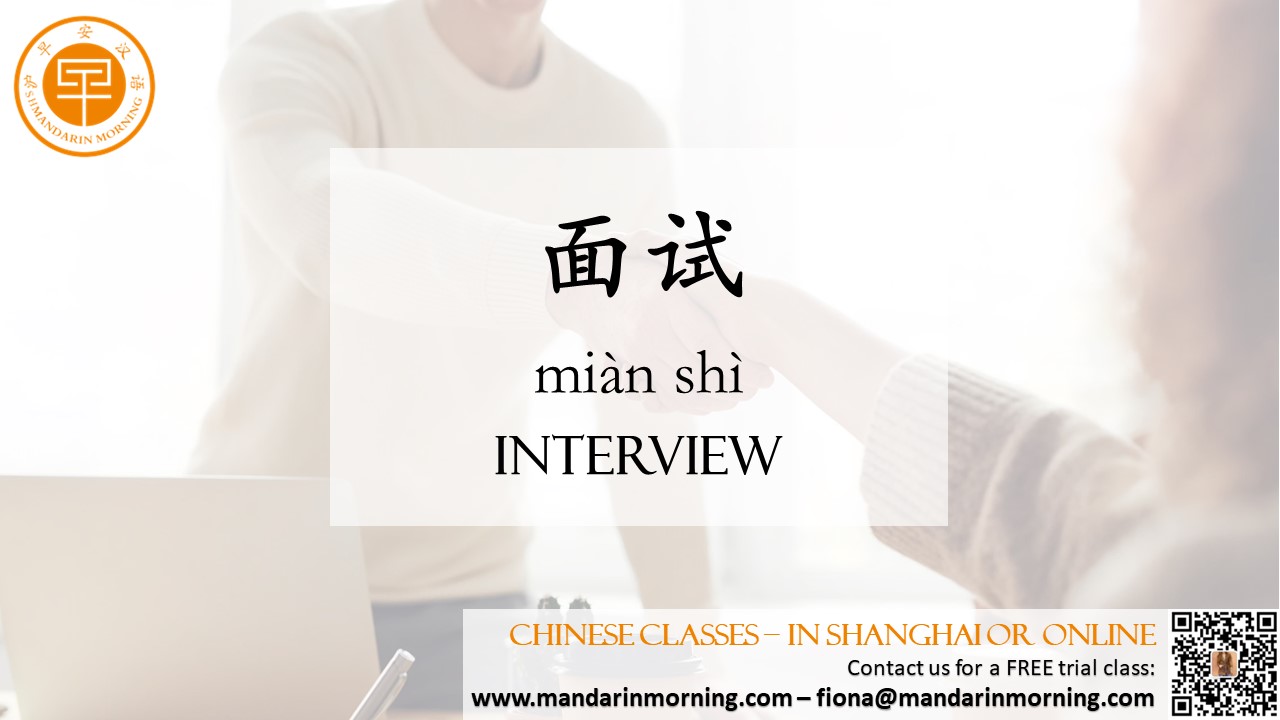Before heading into your next job interview, thoroughly prepare yourself for whatever questions may be thrown your way by reviewing the following five common Chinese interview questions and advice for how to respond appropriately. Your future (hopefully employed) self will thank you! Part 2: Why do you want the job? 你为何想申请这份工作?(Nǐ wèihé xiǎng shēnqǐng zhè fèn gōngzuò) = Why would you like to apply for this job? Try out the following opening statement to preface your reply: 贵公司是… (Guì gōngsī shì…) = Your company is… 贵公司 (guì gōngsī) is a polite way to say “your company” in Chinese and should be followed by a short statement praising the company where you’re interviewing. 我相信在贵公司可以学到新的技能。(Wǒ xiāngxìn zài guì gōngsī kěyǐ xué dào xīn de jìnéng) = I believe I can learn new skills at this company. 我具备贵公司需要的专长。(Wǒ jùbèi guì gōngsī xūyào de zhuāncháng) = I have the skills that your company needs. 这份工作可以让我尽其所长。(Zhè fèn gōngzuò kěyǐ ràng wǒ jìnqísuǒcháng) = I’ll be able to put my skills to full use at this job. Part 3: Show your stuff 你最大的优点是什么?(Nǐ zuì dà de yōudiǎn shì shénme) = What’s your greatest strength? This common interview question presents a perfect opportunity to highlight the professional competencies in which you’re most confident. 我是个很 …和…的人。(Wǒ shì gè hěn... hé... de rén) = I’m a very (adjective) and (adjective) person. Common characteristics likely to be well-received by Chinese employers include, but aren’t limited to, 热情 (rèqíng, enthusiasm or passion), 负责任 (fùzérèn, responsible), 积极 (jījí, energetic or positive) and 主动 (zhǔdòng, proactive). Part 4: No one is perfect 你的弱点是什么?(Nǐ de ruòdiǎn shì shénme) = What are your weaknesses? This final interview question is notorious for making job applicants of all backgrounds clam up. Fear not, however — interviewers aren’t trying to torment you with this question, but are instead looking to gauge your level of self-awareness and potential for improvement. 我是个完美主义者。(Wǒ shìgè wánměizhǔyìzhě) = I’m a perfectionist. 我刚从学校毕业,没有很多社会经验。(Wǒ gāng cóng xuéxiào bìyè, méiyǒu hěnduō shèhuì jīngyàn) = I graduated recently and don’t have much (social/life) experience. 我重视陪家人的时间,所以恐怕周末不方便加班。(Wǒ zhòngshì péi jiārén de shíjiān, suǒyǐ kǒngpà zhōumò bù fāngbiàn jiābān) = I value spending time with my family, so I’m afraid that I can’t work overtime on the weekends. 我的中文不够好!(Wǒ de Zhōngwén bùgòu hǎo) = My Chinese isn’t good enough! Part 5: Wrapping things up After the question-and-answer portion has wrapped up, you may sense that your interview is coming to a close. At this stage, you’ll probably hear the following sentence (or a similar closing remark) from your interviewer: 我们会在一个星期之内打电话通知您面试的结果! (Wǒmen huì zài yīgè xīngqí zhī nèi dǎ diànhuà tōngzhī nín miànshì de jiéguǒ) = We’ll notify you of your interview results within a week. Before shaking hands and bolting for the door, remember to graciously thank your interviewer for their time and for the opportunity to audition for the gig by concluding with a polite statement like the one below: 感谢给我这次面试机会。(Gǎnxiè gěi wǒ zhè cì miànshì jīhuì) = I appreciate this interview opportunity. |